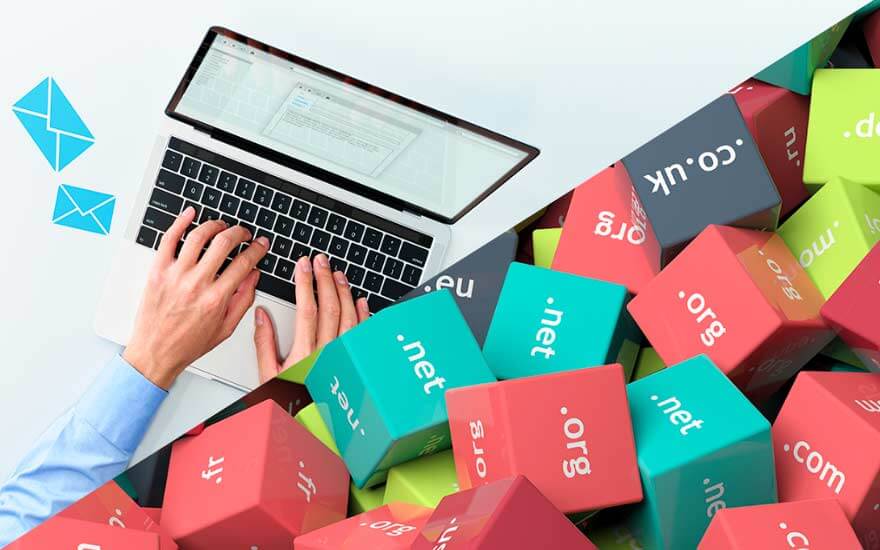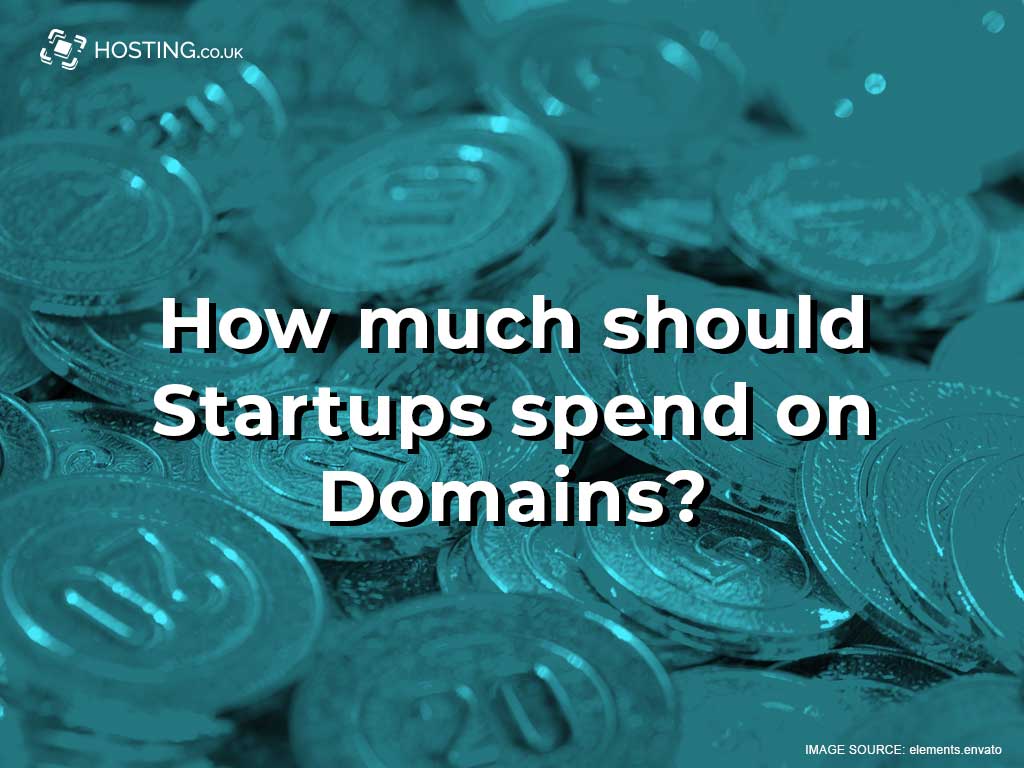Your domain name is the first thing people see when they visit your website. A strong domain can boost the competitiveness of your startup from the very beginning. So, on the long list of things you’ll need to invest in for your startup, your domain isn’t the worst place to start. But that doesn’t mean you should go bankrupt buying a domain. There’s no point in having a catchy domain name if you don’t have money left over to spend on a good web host to keep your site up and running.
But you shouldn’t skimp on a good domain name, either.
Table of Contents
How much does a domain name cost?
The answer to this question is – maddeningly – “It depends.”
Domain names can range from under £2 to over £2 million. (Lasvegas.com is worth tens of millions.)
The price range of domain names is ridiculously wide, but there are factors that will give you a clue as to how much you’ll spend.
6 factors that determine cost:

1. Availability
If the domain name is available, it’ll be a lot cheaper than it would be if someone else already owned it. Being desperate for a domain name that you can buy from only one person puts you in a terrible negotiating position, because the other person can name a price out of thin air.
And if the person finds out that you want the domain name for your startup, prepare to have the price jacked up even higher.
Your best bet is to buy an already available domain for your startup. With a bit of brainstorming, you might even be able to come up with a name you like better than the original!
2. Your TLD – Top Level Domain
Your Top-Level Domain (TLD) is the extension you see at the end of a domain name. (“.com” is the most popular TLD.) The “.com” version of a domain can cost thousands of dollars more than less popular extensions, and that’s just for ordinary, run-of-the-mill extensions. When a domain name is highly sought after, the “.com” version can cost millions more than the less popular extensions.
Not all “.com” extensions are crazy expensive, though. All the factors that increase the price of a domain name work together to determine how much you end up paying. But if you want a “.com” extension (and you should, considering that your customers perceive it to be the most trustworthy), be prepared to shell out a little extra.
3. Number of domains
Another factor that affects the domain budget for your startup is how many domains you’ll need to buy. Depending on your startup, you may need to buy multiple domains.
There are good reasons to do this. For example:
- You think people are likely to misspell your domain name, and you want to buy the misspelled version, so you can redirect people to your correctly spelled website. (Google did this with their most common misspellings.)
- You want to break into multiple markets, and you need multiple region-specific TLDs to do this. (For example, if you want a Lithuanian version of your website to cater specifically to the Lithuanian market, you’ll want to buy a “.lt” extension, in addition to your main website.)
- You want to buy a domain name with a generic keyword, so you can redirect visitors to your website. For example, if you sell doors, you might want to buy doors.com and redirect it to your startup’s branded website.
Buying multiple domains is a great way to boost your position in the market, but, of course, the more domains you buy, the more your startup will spend.
4. Keep an eye out for keywords
The search volume of your keyword will affect the price of your domain. If you use a keyword that doesn’t get a lot of search volume, you’ll pay a lower price than if the keyword gets millions of searches every month. Depending on how much money you’re playing with, you may find it worth it to invest in the high-volume keyword, so your startup has a stronger fighting chance right out the gate.
This is a great strategy, but it’s not necessarily the best strategy for your startup.
You never know: You could buy a cheap, low-traffic keyword and then your startup gets so successful that the keyword blows up. Also, just because you use a high-demand keyword doesn’t mean that the people who visit your startup’s website will end up spending money. So, buying an expensive keyword is a bit of a gamble.
If you really have your heart set on a popular keyword, expect to pay top dollar.
5. Your domain host

Your domain host isn’t the same as your web host. Your web host gives you a place to store your website, but your domain host hosts your domain without necessarily hosting your website.
There are many reasons you might have a different domain host from your web host. For instance, you might have bought your domain from a company that offers domain hosting but not web hosting, or you may have switched web hosts without switching your domain host.
If you want to have a different web host from your domain host, no problem. All you have to do is point your domain name to your new server!
6. Domain name privacy

Any domain name add-on will cost extra, but domain name privacy (also called WHOIS privacy) is especially worth the extra money, in our opinion. Without WHOIS privacy, all the private contact details you entrust to your domain name registrar will be publicly searchable on the WHOIS database. To hide your contact details and protect the privacy of your startup, you should factor WHOIS privacy into the budget for your domain.
The takeaway
Domain names are a solid investment for your startup, and they can be expensive, but they don’t have to be. With a little creativity and a lot of patience, you can come up with a solid, catchy domain name that doesn’t obliterate the budget for your startup.
